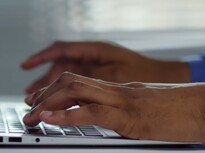Aley - Interview 37

Aley was diagnosed with biphenotypic acute leukaemia (BAL), a mixture of myeloid and lymphoblastic leukaemias, after donating blood. He had no symptoms. Two courses of FLAG-Ida chemotherapy and an allogenic stem cell transplant put him into remission.
Aley is an administrator. He is single and has no children. Ethnic background: Pakistani.
More about me...
Aley was training to run the London marathon and was in very good health. He went to donate blood but was told there was something wrong with it and he should see his GP. The GP did a blood test and phoned him the same day to say that he should go straight to hospital where a haematologist was expecting him. He went there and was told that he may have leukaemia and he would be kept in for investigations and treatment. A bone marrow biopsy confirmed the diagnosis as biphenotypic acute leukaemia (BAL), a mixture of myeloid and lymphoblastic leukaemias.
Many of Aley's friends supported him when he was first ill but he knew that some wouldn't keep that up through his long illness; he does not resent those who drifted away.
Many of Aley's friends supported him when he was first ill but he knew that some wouldn't keep that up through his long illness; he does not resent those who drifted away.
Aley was diagnosed with biphenotypic acute leukaemia (BAL), a mixture of myeloid and lymphoblastic leukaemias, after going to give blood. He had no symptoms.
Aley was diagnosed with biphenotypic acute leukaemia (BAL), a mixture of myeloid and lymphoblastic leukaemias, after going to give blood. He had no symptoms.
Aley broke the news to his brother in Pakistan in stages so as to prepare the family for the bombshell of his acute leukaemia diagnosis and to protect his elderly father from the truth.
Aley broke the news to his brother in Pakistan in stages so as to prepare the family for the bombshell of his acute leukaemia diagnosis and to protect his elderly father from the truth.
But anyway, so I said, “Then I have to call my sister and all.” And he said, “Don’t call her, don’t tell her, she will die.” I said, “Don’t worry about her. I have to let her know, you know.” Then I called my sister. She’s older than me as well. And I spoke to my brother-in-law first. I said, “Oh, there’s something serious. I just want you to support her in this.” And she loves me a lot, you know. We have a very, very good, apart from one, you know, we have a very, very good family love each other. Oh, he went to the room, you know, and he asked me what happened. I said, “Well, this is the situation and I want you to to give, support her, you know. And he said, “Okay.” And then I spoke to my sister. I told her that as well and then it was like she had started crying, that was the expected thing.

